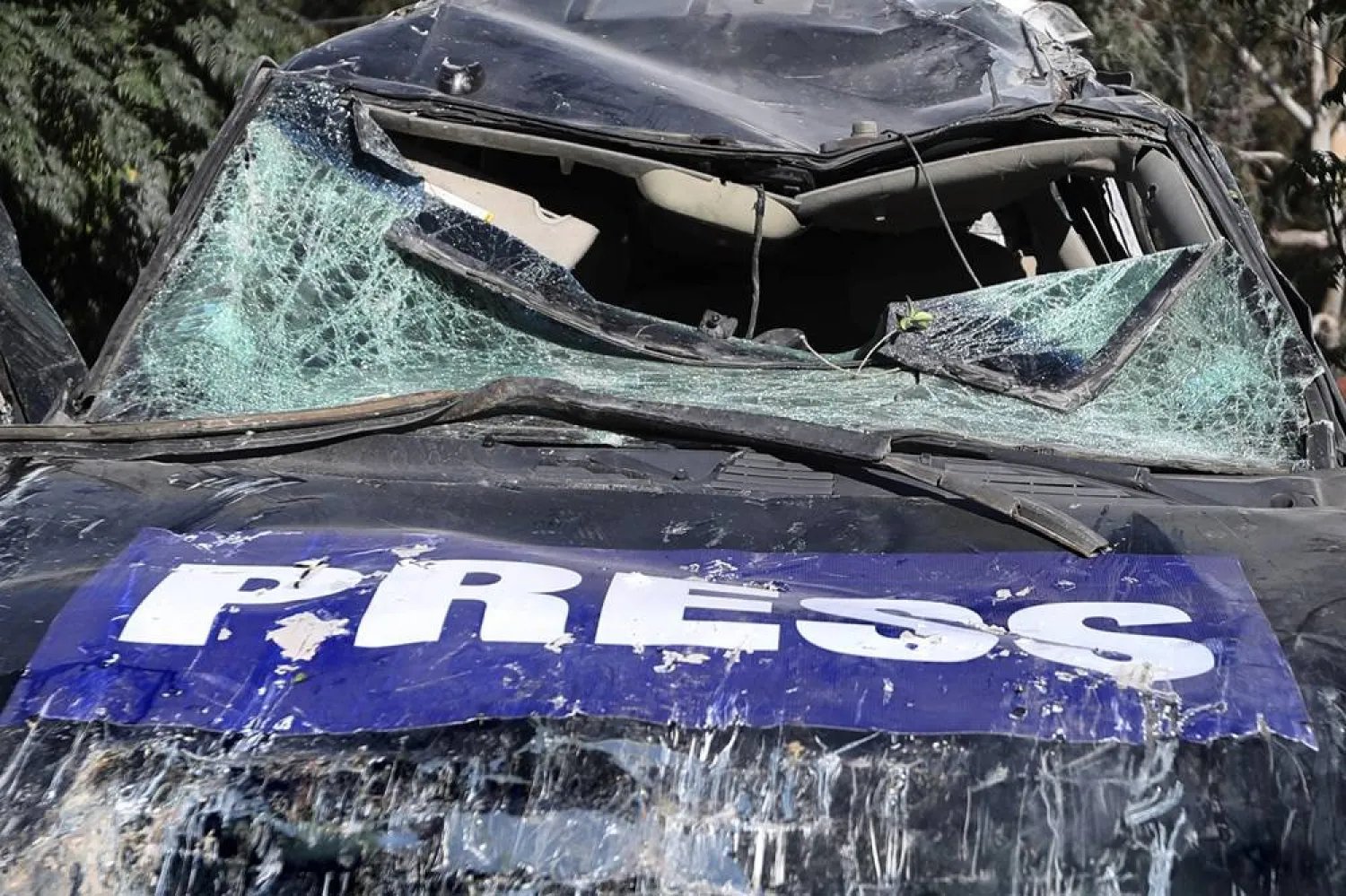Three journalists were killed in Lebanon by an Israeli strike on Friday morning, drawing condemnation from rights advocates about the number of reporters who have lost their lives in the region over the past year.
The Committee to Protect Journalists (CPJ) said it "strongly condemned" the attack, urging the international community to "stop Israel's long-standing pattern of impunity in journalist killings".
The strike around 3 am local time hit a collection of guesthouses housing only reporters in the southern Lebanese town of Hasbaya, killing two journalists from the Al-Mayadeen television network and one journalist from Al-Manar.
Muhammad Farhat, a reporter with Lebanese broadcaster Al-Jadeed, was one of at least 18 journalists staying at the guesthouses in Hasbaya.
There was no evacuation order by Israel's military. Farhat told Reuters he had been woken up by the sound of Israeli jets flying low overhead and heard two missiles strike nearby guesthouses before the roof of his guesthouse collapsed on him.
"The scenes were terrifying. We saw our colleagues and friends cut up, their limbs strewn all over, others were screaming and begging us to pull them out," Farhat said later on Al-Jadeed, tears in his eyes.
The Israeli military said it had received reports that journalists had been hit several hours after its forces had attacked what it described as a Hezbollah military structure in Hasbaya, adding that the incident was under review.
The last year has been the deadliest period for journalists in more than 30 years, CPJ has said, with at least 126 reporters and media workers among nearly 45,000 people killed in Gaza, the Israeli-occupied West Bank and Lebanon.
Two Israeli journalists were killed in the Oct. 7 2023 Hamas-led attack on Israel that sparked the war.
Friday was the deadliest day for journalists in Lebanon over the last year. At least five other reporters have been killed in Israeli strikes while on assignment in Lebanon, including Reuters visuals journalist Issam Abdallah.
Sharing a post about Friday's strike on X, the UN special rapporteur on freedom of opinion and expression Irene Khan wrote: "Deliberate killing of a journalist is a war crime."
Israel denies deliberately targeting journalists.
Mazen Shaqoura, the representative of the United Nations High Commissioner for Human Rights for the Middle East, told Al-Jadeed the strike represented "a targeting of what we hear and what we see."









